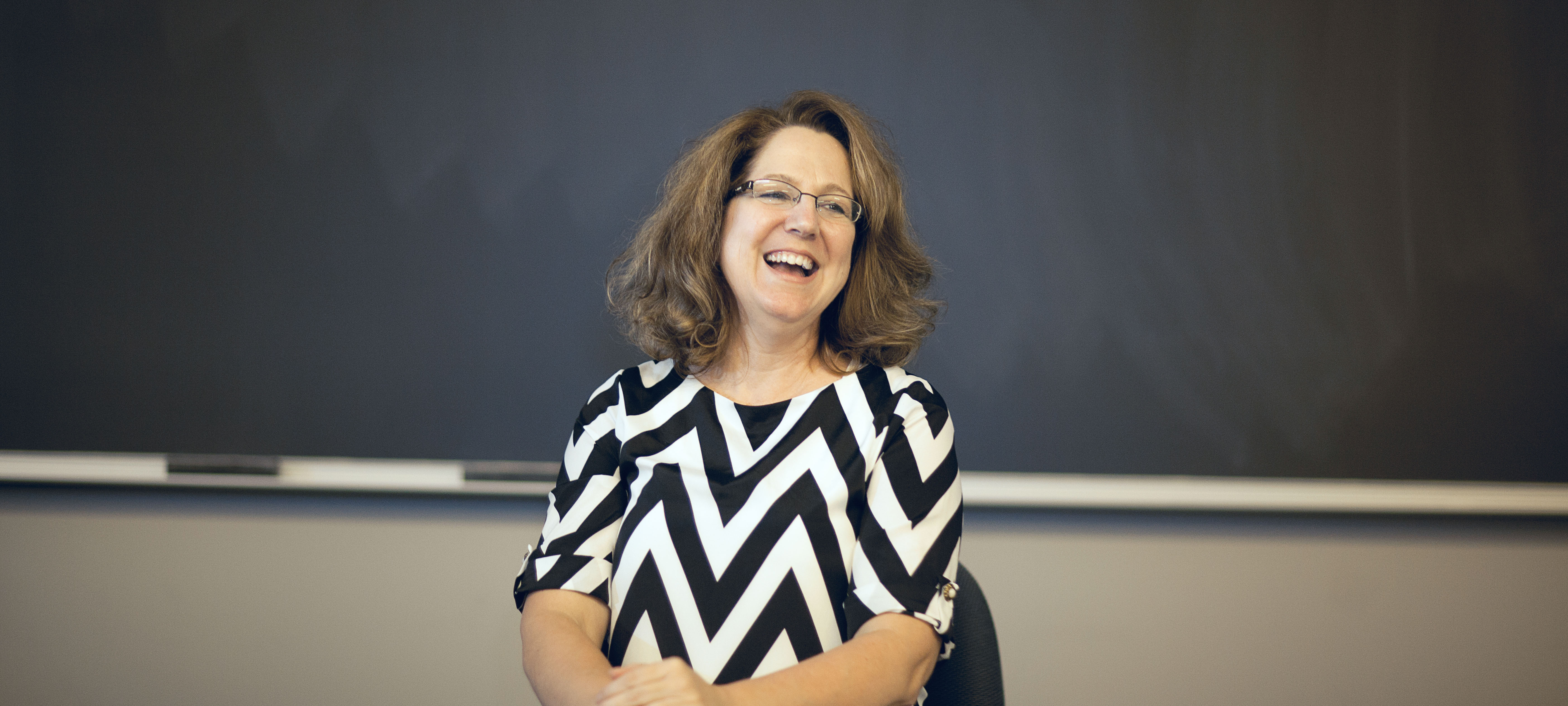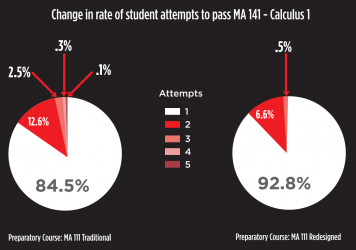Redesigning Courses: Flipping Precalculus to Improve Student Success

Several years ago Dr. Brenda Burns-Williams started to notice her students in MA 111: Precalculus Algebra and Trigonometry becoming disconnected from the course material—quite literally. They didn’t want to carry around the enormous course textbook because it was heavy and not particularly useful, and it embarrassingly signaled to others that they were taking a “remedial” math class. More and more, her students left their books at home.
The textbook was symbolic of other problems with MA 111. Burns-Williams, senior lecturer in mathematics, believed her students were not retaining information from her lectures and were not interacting with the material in a way that allowed them to learn course concepts. In this large, predominantly freshman lecture course, around 35 percent of students were receiving Ds and Fs. In 2007, the NC State Registrar’s Office pinpointed MA 111 as being high-needs for improvement given the high D and F grades and course withdrawal (DFW) rates and the prevalence of course repeats.
In 2009, Burns-Williams applied for, and was awarded, a DELTA Large Course Redesign (LCR) pilot grant to redesign MA 111. The grant program’s purpose was to reconceive and rebuild the delivery of a large enrollment course to increase student learning outcomes, primarily by incorporating learning technology. Over the summer of 2009, Burns-Williams worked with DELTA instructional designers, instructional technologists and LCR coordinators to develop new course materials that would entirely change the way she taught.
When the MA 111 redesigned course piloted in fall 2009, Burns-Williams offered a new learning experience for her students.
“Students can access material in a way that is most comfortable for them,” Burns-Williams said. “They’re able to get videos or read PDF versions of the notes and they can practice and write things down as they are learning. Instead of having a dry textbook or recalling what we did with the notes in class, they’re able to have a more dynamic interaction with the material.”
By flipping her course and delivering content through short videos and PDFs on the new course website, Burns-Williams used class time for better purposes, such as small group work, active learning exercises and answering questions.
MA 111 has been taught in a redesigned manner each semester since fall 2009. DELTA has collected and analyzed data to assess student success after redesign, and the results have been impressive. Students’ ABC grades have increased as much as 15 percent some semesters. DFW rates have declined. And most exciting to Burns-Williams, students who have taken the redesigned MA 111 are more successful in the subsequent course, MA 141, indicating a positive outcome associated with the course redesign project.
“The results have given DELTA statistical evidence to promote course redesign across campus,” said Dr. Traci Temple, DELTA assistant director of planning and assessment. “It serves as encouragement and provides more than anecdotal evidence that course redesign efforts have the potential to increase student retention, improve student performance, and increase mastery of learning and successful transfer of knowledge and skills to future courses.”
Read More
For more DELTA stories like this one, explore the DELTA Annual Report 2012-2013.



